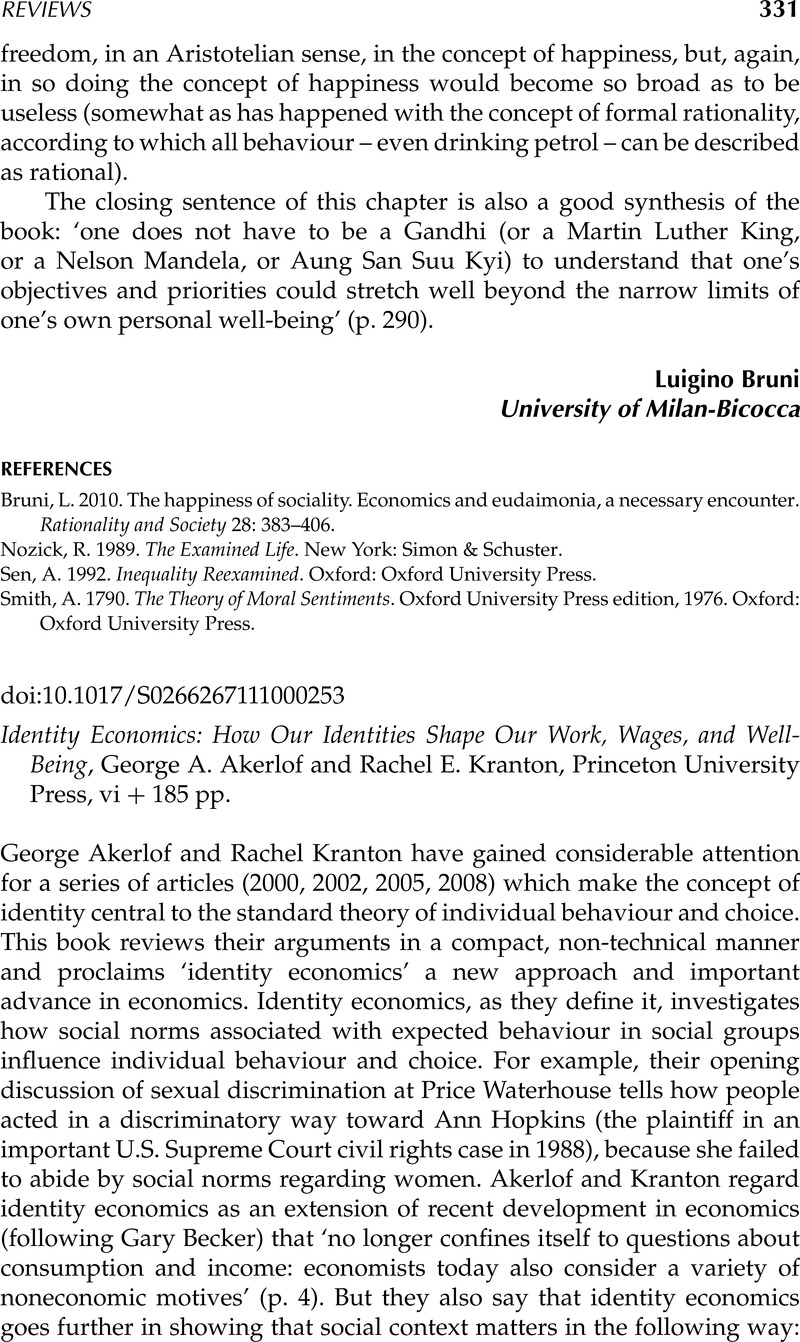Crossref Citations
This article has been cited by the following publications. This list is generated based on data provided by Crossref.
Farrow, Katherine
Grolleau, Gilles
and
Mzoughi, Naoufel
2018.
What in the Word! The Scope for the Effect of Word Choice on Economic Behavior.
Kyklos,
Vol. 71,
Issue. 4,
p.
557.
Banuri’s, Sheheryar
de Oliveira, Angela C.M.
and
Eckel, Catherine C.
2019.
Care provision: An experimental investigation.
Journal of Economic Behavior & Organization,
Vol. 157,
Issue. ,
p.
615.
Lequin, Sonia
Grolleau, Gilles
and
Mzoughi, Naoufel
2019.
Harnessing the power of identity to encourage farmers to protect the environment.
Environmental Science & Policy,
Vol. 93,
Issue. ,
p.
112.
Hinojosa, Leonith
Mzoughi, Naoufel
Napoléone, Claude
and
Guerrero Villegas, Wilma
2019.
Does higher place difficulty predict increased attachment? The moderating role of identity.
Ecological Economics,
Vol. 165,
Issue. ,
p.
106399.
Maris, Robbie
and
Matthews, Yvonne
2023.
Are views of water bodies associated with higher water consumption? An empirical analysis from New Zealand.
Water Resources and Economics,
Vol. 42,
Issue. ,
p.
100220.





